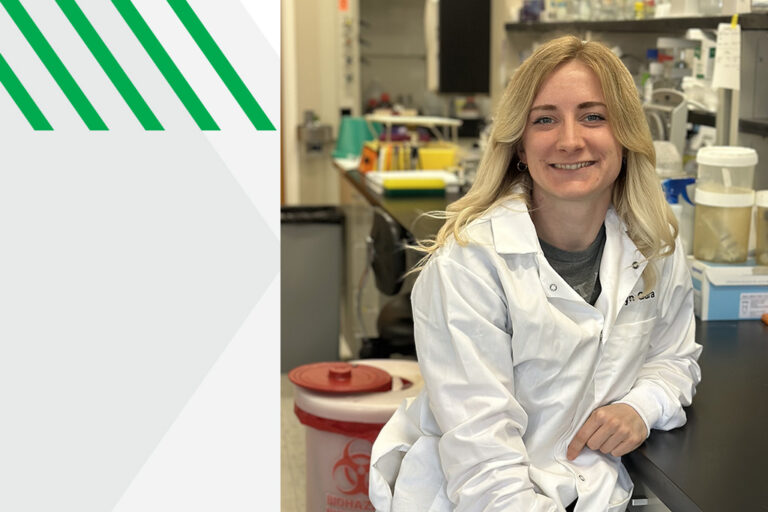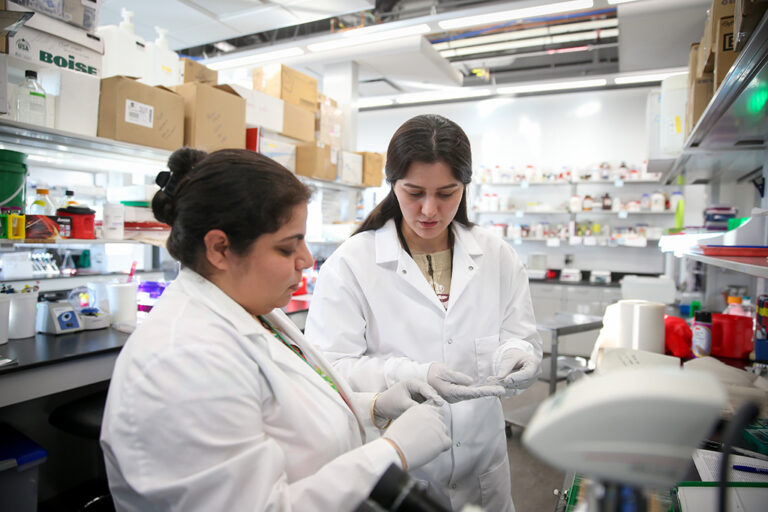UND SMHS announces new assistant dean positions for gender equity and medical curriculum
 The UND School of Medicine & Health Sciences (SMHS) has announced the creation of several new assistant dean positions. In addition to creating a new executive-level position for gender equity, SMHS Dean Dr. Joshua Wynne asked his team to create administrative faculty positions for assessment and the School’s revised medical curriculum.
The UND School of Medicine & Health Sciences (SMHS) has announced the creation of several new assistant dean positions. In addition to creating a new executive-level position for gender equity, SMHS Dean Dr. Joshua Wynne asked his team to create administrative faculty positions for assessment and the School’s revised medical curriculum.
The holders of these new positions are:
- Holly Brown-Borg, Ph.D., Chester Fritz Distinguished Professor in the Department of Biomedical Sciences, is the new Assistant Dean for Gender Equity.
- Minnie Faith Kalyanasundaram, M.D., Associate Professor in the Department of Family & Community Medicine, is the new Assistant Dean for Academic Support and Longitudinal Integration.
- Kurt Borg, Ph.D., Assistant Professor in the Department of Family & Community Medicine, is the School’s Assistant Dean for Assessment.
- Jane Dunlevy, Ph.D., Associate Professor in the Department of Biomedical Sciences, will be the School’s Assistant Dean for Phase 1 [of the medical curriculum].
- Susan Zelewski, M.D., Assistant Dean for the School’s Northeast Campus, will add to her titles Assistant Dean for Phase 2/3 [of the medical curriculum].
Hired last year to help the School as it revised its medical curriculum, Kalyanasundaram will provide oversight and academic support to the medical program, particularly in the area of helping medical students prepare for the high-stakes “Step 1” and “Step 2” USMLE exams.
“We are also placing special emphasis on the pre-matriculation program to provide academic support to medical students prior to their entry into medical school,” Kalyanasundaram said. “Medical students will have access to a safe and supportive academic support program with individual one on one sessions for effective planning and study. In all, we’re looking to provide a safe, nurturing, and supportive environment for medical students to engage in and study, and help them be leaders and effective health care providers for the communities they serve.”
For her part, Brown-Borg has long advocated efforts to bring greater equity to the School.
“The role of the Assistant Dean for Gender Equity is to provide assistance to all departments, units, and programs within UND SMHS to achieve the goal of an appropriate representation of women in the faculty and staff ranks of the SMHS,” said Brown-Borg, who studies the biology of aging. “This will be accomplished in part, by developing, fostering, and encouraging the recruitment, selection, and retention of more women for these positions.”
Over the past two years, the SMHS has unveiled what administrators are calling the School’s “curriculum 2.0.” Features of this revised medical curriculum include more clinic-based education earlier in students’ training (that is, less classroom time and more clinical hours), more elective courses sooner, and more self-directed and “active” learning modules across more courses. These revisions will help keep what was already a leading program — which pioneered strategies like patient-centered and problem-based learning, community training, and medical simulation — at the forefront of medical education in the U.S.
As such, the School was in need of more faculty dedicated to managing the revised curriculum.
“Our school has a fitness for purpose, but this is not always known to the outside world,” concluded Kalyanasundaram. “We’re on the right track and things are looking good for the future. All systems are in place to tackle the pre-clinical and clinical education for our students, and that is the real strength of this medical school.”
Each of the new positions, which were effective June 15, 2021, went to existing faculty and no new hiring is expected.
“All of our new assistant deans will continue their administrative, educational, and scholarly efforts as before, but now will be part of the official administrative structure of the School,” said Wynne. “As such, I plan to incorporate them into the periodic meetings I have with the senior leadership team at the School in a manner akin to what is done at the university level. That way we can coalesce the experiences, insights, and thoughts of a larger cohort of deans to help further define, refine, and optimize our operations and strategic planning for the future.”


